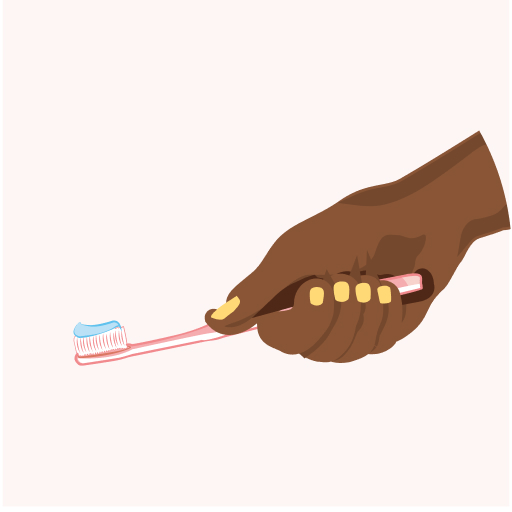
To Our Black Female Patients: “We Got Y’all” (A Reflection on Insecure S4E4)
If you were like most 20-30 year old Black women, prior to the season finale in June, you knew exactly what you were doing on Sunday night at 10pm. Insecure is one of the most-watched television shows in our demographic. The show captivates its audience with its relatability and leads to discussions on topics from friendship to motherhood and everything in between. This past season was particularly timely as it tackled the topic of maternal morbidity and mortality for Black women. In episode 4, Lowkey Losin’ It, Issa, Molly, and Kelly convene to celebrate the birth of Tiffany’s baby. Tiffany laments about her transition into motherhood and what she perceives as mistreatment during her hospitalization. She expresses that she felt she was going to pass out and her complaint was ignored. Ultimately, she was diagnosed with a “blood clot”. All of the ladies are shocked. Issa remarks “These doctors need to start listening to us. That’s how they almost killed Serena.” Kelly wants to leave a 3-star yelp review for the maternity ward and Molly is more focused on her partnership with Andrew than her friend’s newly diagnosed cardiovascular condition (but that’s another discussion). After the show, on the Insecure Wine Down, the writers provide commentary about the scene. They express the purpose of the scene was to highlight issues that plague the Black community surrounding childbirth, especially the neglect Black women feel when they encounter the healthcare system.
While we applaud the attempt made to address the disparities that exist for black women and encourage other media outlets to do the same, these topics should be handled with care. Black women have a tumultuous history with the American healthcare system ‒ and rightfully so. From enslaved black women who were experimented on during the 19th century by J. Marion Sims, known as the “father of gynecology”, to Henrietta Lacks, whose cervical cells were taken without her permission in the 1950s and patented for cancer research, black women have been mistreated in medicine. Fast forward to 2020, there has been limited progress, as a 30-year-old, educated black woman is 4-5 times more likely to die from a pregnancy-related death than her white counterpart.
Mindfully, as young Black female physicians, we want to help bridge the gap that exists between doctors and patients since we are both. During our own doctors’ visits, we have at times felt unheard. Conversely, at work, we have had patients relay that they felt ignored due to being black and female. These systemic issues must be addressed on many levels. Although Black female physicians make up only 2% of the physician workforce, we are a force to be reckoned with. We want Black women to know that there are healthcare professionals in the hospital advocating for them. We also want this to be reflected in mainstream media. Our approach to medicine is different because we intimately understand the issues that affect us and much like Issa’s last employer, “We Got Y’all” (better than the fictional after-school program).
As seen in this episode of Insecure, the healthcare system still has the capability to fail us, leaving instances where we may need to advocate for ourselves. We want to equip you with the skills to navigate these tough situations. Here are five tips to help you speak up about your health:
-
1.
Come Prepared. Use your smartphone’s “notes section” to keep a written list of your surgical and medical history, including all medications or supplements you take. This will keep you organized and ensure your doctor has information beyond “I take a yellow pill.” If you’re seeking medical care for a new symptom, keep a “symptom diary”. Including the date, write down when your symptoms started and any related details. For instance, if you feel short of breath, keep track of when you felt short of breath, what you did prior to feeling short of breath, and what, if anything, made you feel better. These details are important because shortness of breath after a workout is different from shortness of breath while lounging watching Insecure.
-
2.
Be Willing to Answer Questions. A good physician should know your business. If not, that may mean they are not proactively addressing your medical concerns. They should ask detailed questions about your medical history and reason for your current visit. As doctors, we need answers to the right questions to provide you with the best care. Depending on your medical concern, these questions vary. Some of the topics may be sensitive to discuss. If you think a particular question is invasive, ask the doctor to explain why the answer is relevant to your care.
-
3.
Ask Questions. If your doctor uses a medical term that you don’t know, ask them to explain it. If your provider asks a question that you don’t understand, ask them to rephrase it. Your next doctor’s appointment is not the time for silence or avoidance, *coughs* Molly and Issa. Part of your doctor’s job is to explain your medical problem and next steps in a way that you understand. If you are confused, ALWAYS ask for clarity.
-
4.
Over-testing may not be good care. As a doctor, when we enter the profession, we take an oath to “first, do no harm”. This includes excessive evaluation and treatment. Every diagnostic test, imaging study, and procedure has associated risks. It is our job as physicians to assess those risks in relation to the benefits for each individual patient. What may be an appropriate test or study for one person may not be appropriate for you. If you think you should receive a certain test but your doctor says it’s not needed, ask why. A proper discussion should include your doctor explaining the risks and benefits of the test or procedure with reasonable alternatives.
-
5.
Know your options. As a patient, you have power ‒ so use it! If you’re seeing a healthcare provider who is disrespectful or discriminatory, file a formal complaint. Patient relations is a department designed to address these types of issues in the hospital. If you are at an outpatient clinic, ask to speak with the office manager. Some institutions provide patient care advocates. If you feel your provider does not relate to you or constantly downplays your concerns, consider switching doctors. Keep in mind that this may not be possible in emergency situations, but you should seek new doctors until you find a good fit.
You should feel empowered to get the medical care you deserve. Find a team of healthcare providers that you trust, before emergencies occur. Having a good relationship with your doctor, before you get sick can lead to better care when you’re sick. Although not discussed in the scene, Tiffany may not have had a good relationship with her OB/GYN before delivery, which affected their communication. While the symptom Tiffany discussed does not necessarily lead to the diagnosis of venous thromboembolism (aka blood clot), it does illustrate that we have to do a better job of making our Black female patients feel respected and heard.
Using the information provided above, you can advocate for yourself. We don’t want you to feel like the only way for your voice to matter is to “have Derek cuss out like 9 doctors”. It is our hope that as we move forward, on-screen and in real life, you know that there are doctors who see you because we are you.
More Content
General Health
Every Little Sip You Take...Tea Will Be There
[videopress PaRuTVm0] I have always known that...











